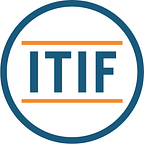Selectivity Life, Harnessing Innovation to Expand Access to Fertility Treatments
This post is one of a series in the #Innovate4Health policy research initiative. #Innovate4Health is a joint research project by the University of Akron IP Center (UAIP), the Information Technology & Innovation Foundation (ITIF), and the Geneva Network. This project highlights how intellectual-property-driven innovation can address global health challenges. If you have questions, comments, or a suggestion for a story we should highlight, we’d love to hear from you. Please contact UAIP Research Fellow Douglas Park at dpark@uakron.edu for more information.
By Natalie Khoo
Infertility, commonly defined as the inability to achieve a pregnancy after 12 months or more of regular, unprotected sexual intercourse, is a pressing global health issue. Estimates suggest that infertility impacts 48 million couples and 186 million individuals of reproductive age worldwide, often with devastating consequences. According to Dr. Tedros Adhanom Ghebreyesus, Director-General at the World Health Organization (WHO), this disease of the male and female reproductive system “does not discriminate” and approximately one in six people have experienced infertility at some stage of their lives.
Beyond responding to declining birth rates, addressing infertility is crucial for upholding individuals’ sexual and reproductive health and rights (SRHR). However, infertility policies and services in many countries fall short of adequately addressing this pervasive issue. This shortfall can often be attributed to restrictions on individuals’ ability to access essential services they need, such as assisted reproductive technologies (ART). The global demand for ART solutions to infertility continues to grow, with a market size valued at $25.7 billion. In the United States alone, approximately 238,126 patients had 413,776 ART cycles in 2021, which accounted for 2.3 percent of all infants born in the country that year.
While there have been significant advancements in fertility treatments, such as in vitro fertilization (IVF), which have revolutionized the notion of human reproductive potential, access to these innovative scientific technologies is still largely unavailable, inaccessible, and unaffordable to many, particularly in low and middle-income countries.
Currently, 75 percent of individuals affected by infertility worldwide lack adequate access to treatment due to financial barriers, shortage of trained personnel, or simply a lack of necessary equipment and infrastructure. As fertility treatments are predominantly funded out-of-pocket, it often places a significant financial burden on individuals and families residing in low and middle-income countries. Reports estimate that a single IVF cycle can range from $15,000 to $30,000, underscoring the enormous financial strain associated with seeking care and the persistent challenge of ensuring equal and equitable access to fertility care, particularly in low and middle-income countries.
The team at Selectivity Life, a medical startup based in Argentina, has tackled this global health challenge head-on by redefining what accessible, affordable, and most importantly, inclusive innovation in fertility care looks like. By leveraging the company’s patented technology (Patent numbers: AU2024201489, CA3053877, US20200032199, WO2018154169)- a biomimetic membrane for sperm selection- the innovators at Selectivity Life created an innovative sperm selection device that shifts traditional paradigms of laboratory-based fertility treatments to a more convenient and patient-centered approach.
Unlike current infertility treatments, Selectivity Life’s innovative medical solution is non-invasive and allows procedures to be conducted right in the comfort of an obstetrician gynecologist’s office, ultimately simplifying the journey towards conception, making the process more accessible and less daunting for those involved. The patented technology enables efficient and effective sperm selection by mimicking the natural physiological barriers sperm must navigate to fertilize an egg, thus ensuring DNA fragmentation is kept at a minimum, increasing the likelihood of successful conception. This approach not only improves the quality of sperm used, but also eliminates the need for costly and complex medical procedures and equipment, reducing the financial strain and emotional stress patients must endure, especially in resource-constrained environments.
Selectivity Life has made a huge impact in the current infertility treatment landscape. Under the leadership of founder and CEO, Jonathan Gubspun, the company has successfully increased access to fertility treatments for over 50 million couples and single mothers who previously faced substantial barriers to accessing ART. Similarly, the startup’s success has attracted significant financial backing from Córdoba Innovation and Entrepreneurship Agency and CITES, an accelerator and technology-based business incubator of early scientific-technological projects. Notably, the company has managed to raise a total of $560,000 to fuel further development and expansion of Selectivity Life’s medical innovation portfolio. The value of the innovation has also been recognized on a global scale as Selectivity Life was one of the three startups from Argentina that were chosen as the finalists for the Entrepreneurship World Cup in 2023, marking a significant milestone for the health startup.
The role of intellectual property cannot be understated, especially in this space. For startups like Selectivity Life, securing patents is crucial in ensuring they maintain a competitive edge in the market. Moreover, it provides them with the leverage needed to negotiate partnerships and funding, which are crucial for scaling operations and expanding their impact on global health challenges.
The profound impact of Selectivity Life’s intellectual property is evident in the expansion of their product range. Building on the success of the patented technology in the sperm selection device, the team created a home intrauterine insemination (IUI) system, a single device that allows IUI’s to be conducted in the comfort of one’s home. Designed for simple and easy use, this user-friendly solution offers a significant improvement in the quality of life for individuals struggling with infertility.
As fertility management strategies are deeply personal journeys that vary widely from one individual to another, Selectivity Life offers a range of options tailored to meet the diverse needs and circumstances of those aspiring to start or grow their families, as the debilitating nature of infertility not only affects physical health but also inflicts significant emotional and mental stress. The success of the team at Selectivity Life has not only demonstrated the critical role of innovation and intellectual property in addressing global health challenges but also serves as a beacon of hope for millions of individuals suffering from infertility.
